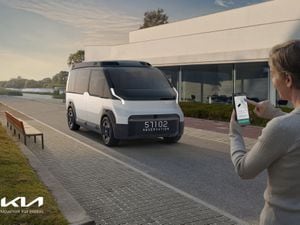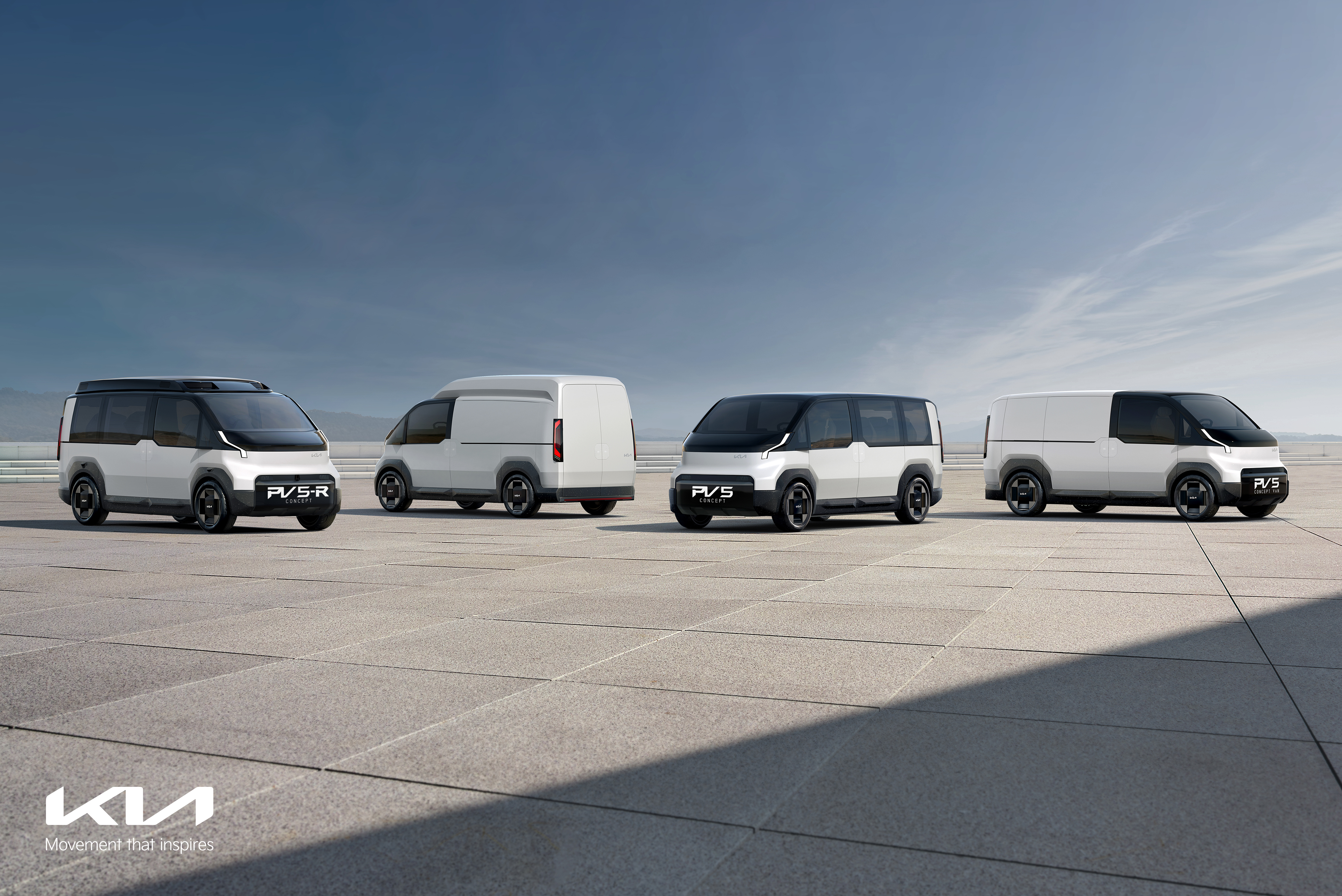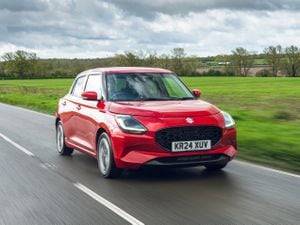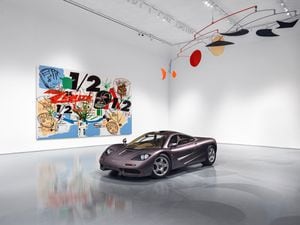Kia to offer its new commercial vehicles to Uber
Two firms are set to collaborate as Kia builds up its commercial vehicle unit

Just days after Kia revealed its first purpose-built vehicles (PBVs) as part of its new commercial vehicle division, the firm already has its first major customer – the ride-hailing app Uber.
Kia announced a range of new vans and passenger-carrying models at the Consumer Electronics Show (CES) in Las Vegas as part of its new modular platform, with the firm now signing a memorandum of understanding with Uber.
While Kia is also targeting more conventional vans, the firm says that the ‘mobility market’ will play an important role in its new business unit and that the partnership with Uber will make sure that its PBVs are ‘optimised for drivers and fleets’.
Kia says the partnership will help it ‘identify optimal specifications’ for the vehicles, and work out the technologies and services best suited to the ride-hailing market. Specific PBVs may also be built purely for the needs of Uber’s drivers.
The firms will also explore different kinds of subscription services and ownership models, including offering a battery leasing scheme to help reduce the initial cost of buying the vehicle.

Susan Anderson, global head of business development at Uber said: “Drivers on the Uber platform are already EV early adopters, going electric six to seven times faster than the general population in the US and Europe.
“That’s great for all of us because when rideshare drivers go electric, communities see three to four times the emissions benefits compared with an average driver making the switch.
“By teaming up with Kia and providing our insights, we aim to broaden the appeal and lower the cost of electric vehicles, making them a more natural choice for more drivers.”
At CES Kia revealed five concept vehicles of various shapes and sizes. The mid-size PV5 van, shown in concept guise, is set to enter production in 2025 and will make up the first phase of the firm’s commercial vehicle division.





